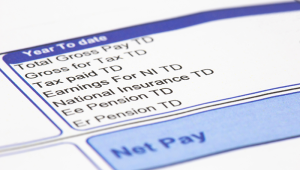Doctors and other health professionals will be given control of almost £65bn of English NHS spending from next year if the government’s controversial reforms go ahead, according to Department for Health figures.
The first detailed estimates of the funding that will be transferred from primary care trusts to clinical commissioning groups from April 2013 were published yesterday. These also show that at least £2.2bn will go to councils for public health promotion.
The figures were announced the day before the House of Lords resumed its scrutiny of the Health and Social Care Bill.
The Bill, which will replace primary care trusts with clinical commissioning groups, has been in Parliament for more than a year.
Last April, concerns from health professionals led to the government halting its progress to appoint a group of experts to review it. The NHS Future Forum reported last June, and ministers subsequently announced a series of changes to the plans.
However, many professional groups, including nurses and midwives and the Royal College of GPs, remain opposed.
Peers will examine the plans at report stage today. A total of 137 government amendments will be debated, which Health Secretary Andrew Lansley said would ‘address [the] remaining issues’ around the reforms. These propose to ‘put beyond doubt’ the health secretary’s responsibility for the NHS, and also charge regulator Monitor with promoting integration of NHS services.
Announcing the funding estimates yesterday, Lansley said shadow commissioning groups already spend almost £30bn, as delegated from the outgoing primary care trusts.
He added that the funding estimate, which is £5bn more than earlier calculations, would help the groups begin work on their budgets later this year.
‘By April 2012, we want local doctors, nurses and other health professionals to be involved in shaping all spending decisions that they will in future be responsible for,’ he said.
‘There is more work to do, but these estimates mean that clinical commissioning groups and local authorities can begin planning how to deliver the frontline services that matter the most.’
The NHS Commissioning Board, which will have responsibility for providing dental services and eye checks, has been given an indicative budget of £21bn.
David Rogers, chair of the Local Government Association’s community wellbeing board, said the public health funding announcement offered ‘a sensible basis’ for councils to plan from.
However, he added that there was ‘clearly more to be done’ before the final allocations are decided.
‘It is vital that councils’ best efforts are not hampered by funding that is based solely on historic data that is no longer fit for purpose and we would now urge government to move as quickly as possible to implement a formula that is transparent, robust, and fairly represents an area’s needs.’





















